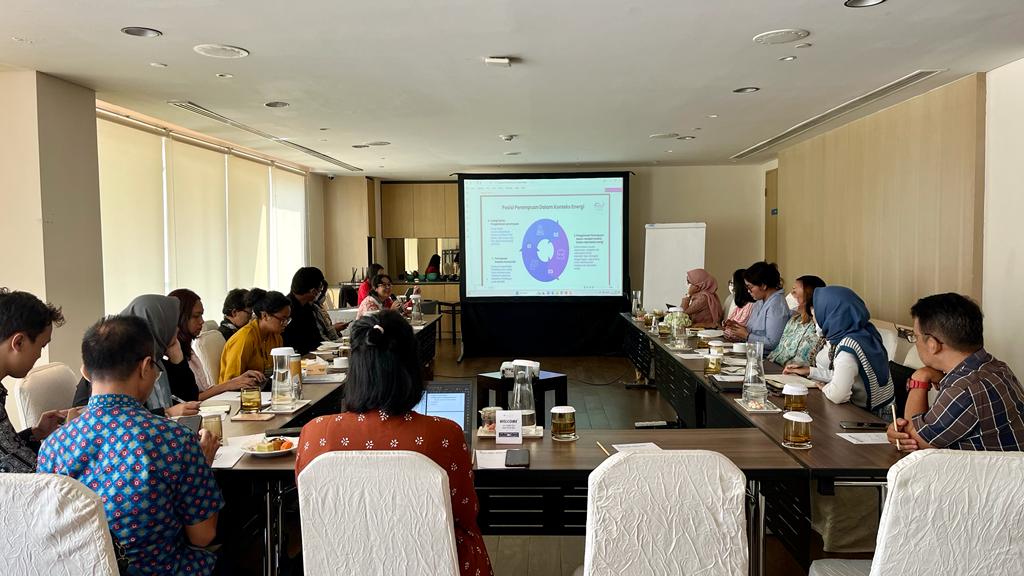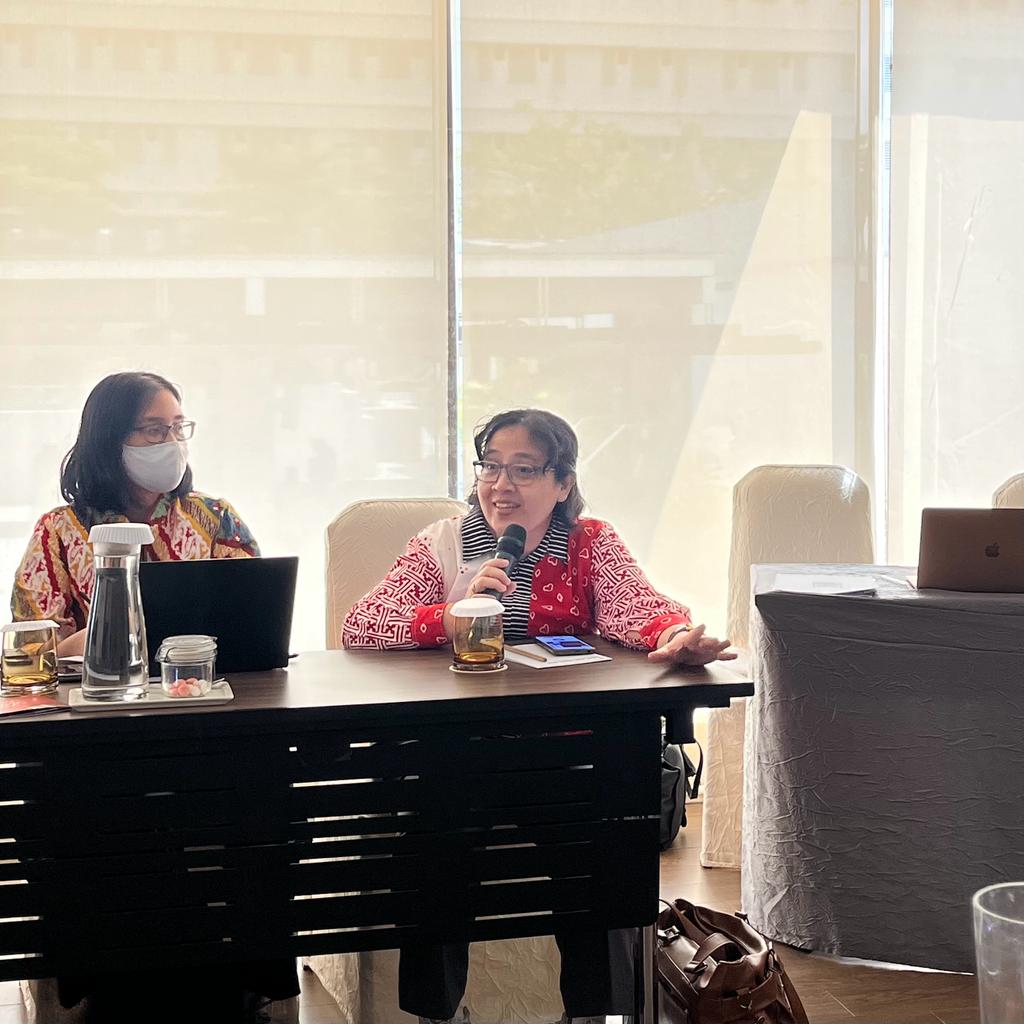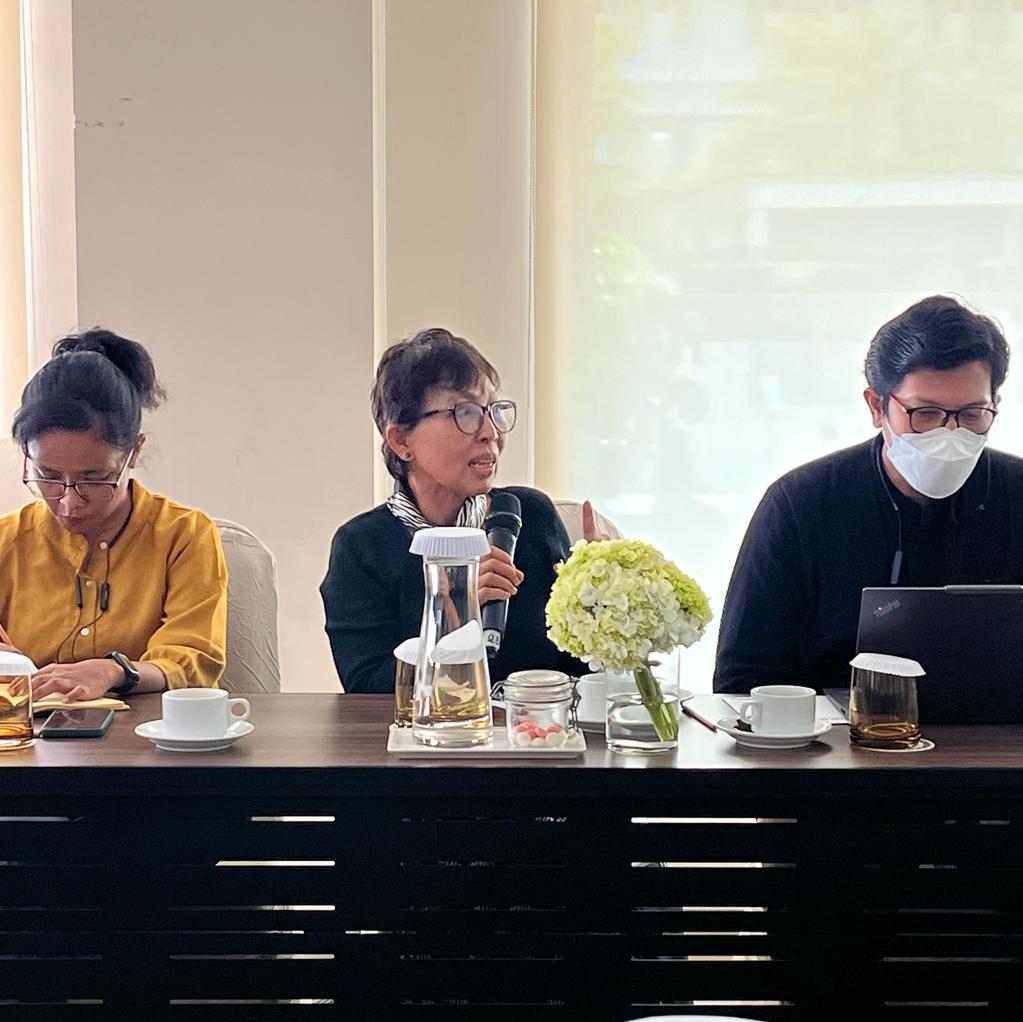Jakarta – Publish What You Pay (PWYP) Indonesia held a Forum Group Discussion (FGD) to explore a scoping study related to “Energy Transition in the Feminism Lens” on December 21, 2023, in one of Central Jakarta. This forum invited speakers from women’s organizations: Mike Verawati Tangka, Secretary General of Koalisi Perempuan Indonesia, Ruth Indiah Rahayu, Inkrispena Researcher, and Kalyanamitra Board of Trustees. The primary purpose of this activity is to discuss the energy transition from a feminist perspective. In addition, it encourages an equitable energy transition for women and people with disabilities, marginalized groups, and other vulnerable groups. Through critical reflection on this background, it is hoped that constructive solutions will emerge towards a just and inclusive energy transition in Indonesia.
In facing the challenges of climate change, Indonesia has formulated a Long-Term Strategy for Climate Resilience and Low Carbon. This document emphasizes the importance of an effective and inclusive transition in reducing emissions by building a foundation of climate-resilient development that considers the need for gender justice equality.
In line with global commitments, in the Nationally Determined Contributions (NDC), Indonesia places gender equality, women’s empowerment, and intergenerational equality as top priorities in climate change. In the Enhanced NDC 2021, Indonesia reaffirms its commitment to reduce emissions by ensuring the full participation of stakeholders, including local communities, vulnerable groups, women, and indigenous peoples, not only in the planning stage but also in the implementation itself.
As a concrete step, the Just Energy Transition Partnership (JETP) has made gender equality and empowerment a cornerstone of its “Just Transition Framework“. This standard affirms the right of every individual to participate meaningfully and fairly in energy programs and projects. JETP promotes gender equality and empowerment, especially for vulnerable stakeholders, including women, and addresses potential risks of gender-based violence.
The recognition of gender equality and equity in the energy transition process is a crucial opportunity to change power structures that are not gender-equitable. Not only does the energy transition involve technical aspects, but it also provides an excellent opportunity for women to have greater access to decision-making. It is essential to recognize that not all women are equally disadvantaged in the current energy system. Therefore, an intersectional approach is needed to address the diverse challenges in the transition process.
Traditionally, women have been underrepresented in the energy sector, limiting their knowledge, needs, and preferences in energy development. Engaging marginalized women, whose participation in the energy sector is invisible or unsupported, is therefore imperative. Women’s leadership in influencing energy policy is also an essential step in achieving the goal of gender equality.
From a feminist perspective, a just energy transition reflects the recognition that the consequences of energy systems and policies and imbalances in power, resource allocation, and labor must be corrected for the transition to be truly just. This is not just about including women and marginalized groups but also requires a profound restructuring of the energy system, prioritizing social, environmental, and economic justice. Transformational change in the relationship between the environment, production systems, and consumption is also focused.
At the beginning of the session, Mike talked about women and renewable energy. He mentioned that women are not just consumers when discussing energy issues. So far, the energy sector has been identified as a masculine sector. “We have to talk about the problem. Women are energy providers in the household. Women are omitted when discussing governance or the process of drafting energy policy. But, women will be dizzy when there is no electricity, scarce LPG, and other needs. Even though when a crisis occurs in the household, the impact will be widespread. We rarely think that energy has firm roots because it is related to basic household needs, “he said.
In addition, many programs need to be more accurate in including women in the context of energy. “When we strengthen women, we are making them agents of change. Currently, the role of women is standardized only in the domestic aspect. It is tough for women to develop economic work. When women don’t have alternatives, they don’t have the opportunity to self-actualize, to develop,” Mike added.
Ruth went on to explain the energy transition from a feminist perspective. She said, “If we talk about energy problems, this crisis is caused by the growth paradigm. So far, only economic growth has been pursued. For this reason, it is important to think of an alternative paradigm for high-level economic growth and adjust it to other important aspects of social life. The approach that can be taken is social reproduction. The point is to seek a balanced division of roles between men and women regarding domestic burdens. Women have power over society and social development. How can these women seize the power for social reproduction? How the principles of care for nature and human social relations become public habits. Not just women,” she explained.
In addition, there is segregation in the labor market based on gender stereotypes. Women are associated with being diligent, thorough, and physically weak, so they are put in certain positions. Women are forced into the ideology of accelerated growth. “Social reproduction is to produce humans in the form of labor, intellectuals, and social beings. However, women usually stop at just one point: labor. The substance of human beings has these three dimensions, but capitalism forms only labor. Women are also “forced” to work. As a result, women experience a lack of time for social relations,” Ruth added.
At the end of the session, Ruth mentioned that several things need to be criticized in this context. Does green energy emancipate women? Can green energy restore the metabolic rift between women and nature to fulfill social reproduction? Can green energy reduce the economic burden on women? Does green energy restore women’s time to enjoy togetherness in social relations, participate as active citizens, and increase the capacity of knowledge literacy and other skills?
In addition, there are other problems related to the energy transition. The mass application of emission reduction technologies still creates injustice for countries in the South. Green growth scenarios only reduce high-cost energy use in high-income countries but are exploitative for the South. Where is the green energy transition? This is what needs to be criticized. Civil society organizations must be critical of green energy transition slogans, especially those involving women.
Author: Raudatul Jannah
Reviewer: Mouna Wasef


